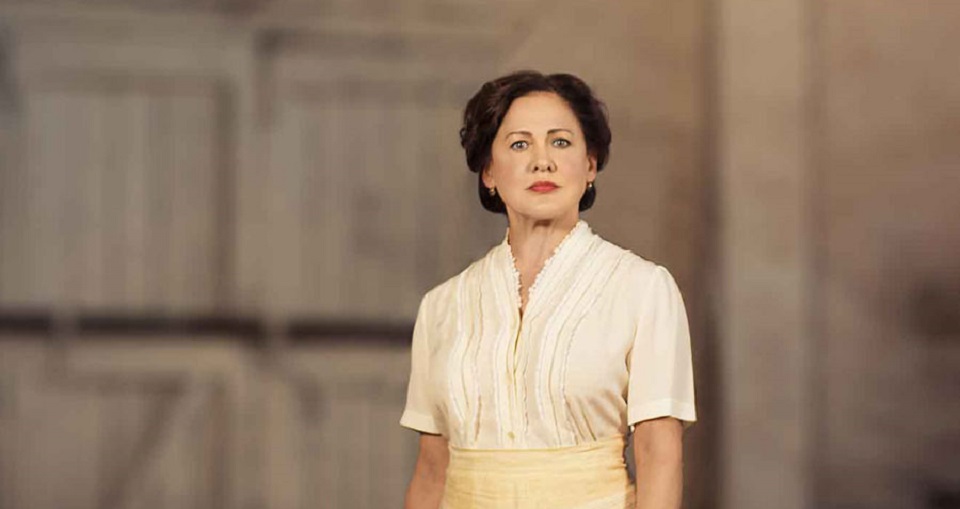Dunstan Playhouse, Sat 24 Nov.
It’s great when an opening scene draws you in immediately and fills you with confidence and anticipation about what’s to come. Daily life for many migrants in post-war Port Pirie began with a line-up outside the smelter in the hope they might get work for the day. It was something of a lottery but those who queued every day ensured that everyone got their fair share of work. Such was the spirit of cooperation among these early migrant workers.
Presented by State Theatre Company of SA, The Gods Of Strangers is a play in two halves: the first is full of humour and optimism; the second half has people facing the dire consequences of decisions made long ago. The play is conducted in three languages – English, Greek and Italian – and for English-only speakers a good half of the dialogue must be read via sub-titles. That is something of a challenge. It is not like watching sub-titles on television where your line of vision is essentially straight ahead. Here you needed to avert your gaze to read the sub-title and then look back at the characters, and subtleties of the performance are inevitably lost in the process. But overriding all of that was the thrill of seeing Australian drama presented in foreign languages; the languages of people who have made a massive contribution to post war Australia, and who are now considered by some to be as Australian as any Anglo resident.
And this of course offers an opportunity for foreign born Australians to use the exaggerated body language that typically goes with Mediterranean communication, with its extra levels of heightened emotion. “Why are you people so emotional?” asks Agnes, the neatly rigid and sole Australian born character (Elizabeth Hay).
Dina Panozzo is brilliant as Assunta, the sexy, down-to-earth, no nonsense Italian woman who runs a local boarding house. Her scene with Renato Musolino (Vita) as she berates him with the house rules while trying to pry into his private life is priceless. When you sense that an actor’s laughter is genuine and not just part of playing a role you know things are going well, and Musolino’s obvious enjoyment of Panozzo’s flamboyance is a joy to watch.
Phillipos Ziakas was engaging as Yianni, the handsome young Greek full of optimism and dreams of a bright future, but his world comes crashing down when he learns the truth about his mother. He is not the only one to have his world shattered as time reveals that the optimism and good humour on show early in the play was masking a myriad of dark secrets. Watching these same characters cope with sudden changes of reality is quite confronting – both for audience and cast I’d suggest.
One must make mention of the gorgeous scene where Assunta uses the music of Tosca to get Agnes, the young Australian woman, to express her true feelings. It was predictable perhaps, but still beautifully done.
In a final footnote we are told that the stories like those told in The Gods Of Strangers are for the unborn daughters of the future, so that they will know that their past was built on the courage and strength of women who crossed the world to forge new lives. And author Elena Carpetis’ program notes acknowledge the role and place of the Kaurna people and her own Greek ancestors in bringing these stories to light. The Gods Of Strangers is clearly meant to be seen as just a small part of a much bigger picture.
4 stars
Michael Coghlan
The Gods Of Strangers continues at the Dunstan Playhouse, Adelaide Festival Centre, at various times, until Sun 2 Dec.
Book at BASS on 131 246 and bass.net.au. Click HERE to purchase your tickets.
The Clothesline Rating...
Michael Coghlan
From humour and optimism to facing the dire consequences of decisions made long ago.




